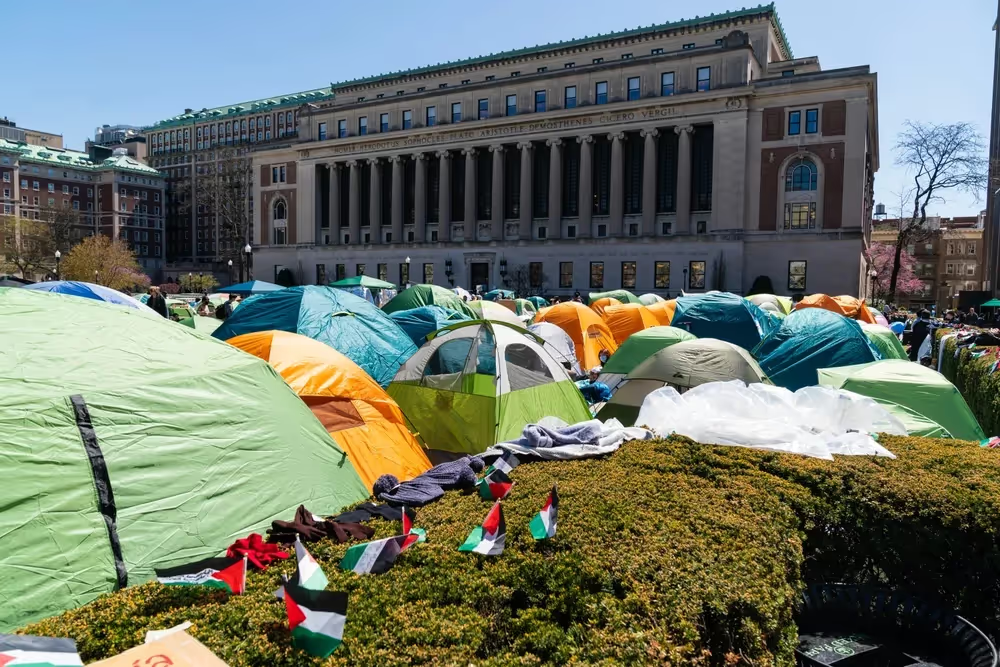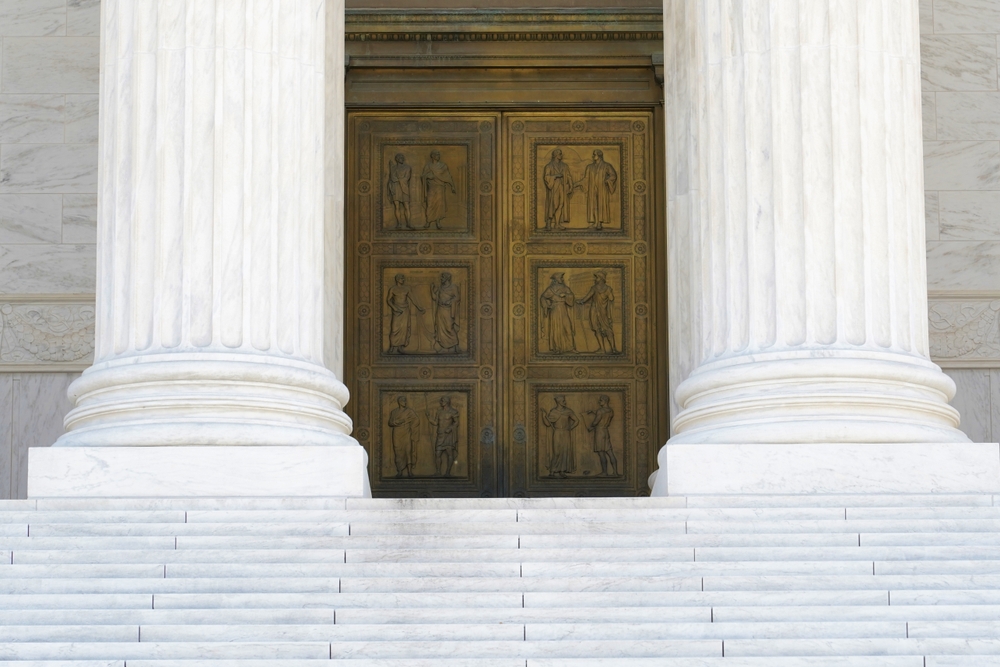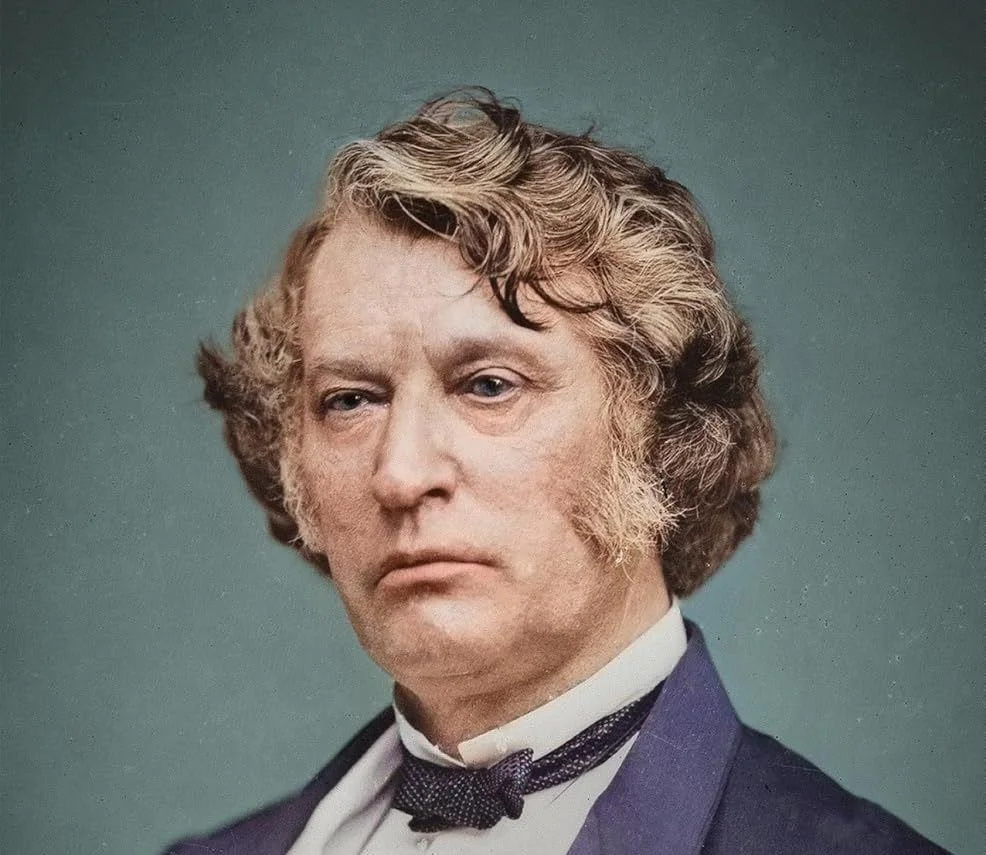
Regaining Our Principles and Institutions
The disciplined, academic pursuit of truth alone is the unique role that justifies supporting higher education.
Editor's Note: Michael Poliakoff responds to Hadley Arkes' lead essay "Free Speech and the American University: A Proposal."
The purpose of a university is the discovery of truth and its application in instruction, whether that be in matters pragmatic or intellectual. It is the defining goal and reason for the existence of the lecture hall, the seminar room, the laboratory, and the library. Although sports, campus activities, social gatherings, and political rallies can and should be educative experiences, they are ultimately serendipitous adjuncts to the telos of the truth-seeking mission. Although the formation of character is an extremely important aspect of the collegiate experience, that, too, is a contingent benefit. The disciplined, academic pursuit of truth alone is the unique role that justifies supporting higher education. And it should not be forgotten that the hard and exacting work of a rigorous academic curriculum is character training, actually quite excellent character training.
Freedom of inquiry, freedom of speech, and freedom of expression represent the necessary and indispensable conditions for that truth-seeking. In the words of the C. Vann Woodward Committee report of 1975, “The history of intellectual growth and discovery clearly demonstrates the need for unfettered freedom, the right to think the unthinkable, discuss the unmentionable, and challenge the unchallengeable.” That is also the rationale for academic freedom, Lehrfreiheit, and Lernfreiheit. It is a special privilege, as Edward Shils observed, neither a constitutional right nor a natural right. But it is essential to the mission of the university. This respondent to Professor Arkes’s important and challenging proposal would also add that learning to listen patiently to and thoughtfully answer positions and arguments that appear, in the words of the Chicago Principles on Freedom of Expression, “offensive, unwise, immoral, or wrong-headed,” is one of those elements of both academic and character training.
Professor Arkes provides an important example of the ethic that must shape citizens of the academy when he recounts the University of Notre Dame’s forum on abortion. However outrageous we may find a position, in the words of Justice Oliver Wendell Holmes, Jr., in his landmark dissent in Abrams v. United States, however much it represents “opinions that we loathe and believe to be fraught with death,” freedom of inquiry and discussion represent the true, indispensable ethic of the scholar and teacher. Given its religious mission, Notre Dame has no more obligation to support a hypothetical Students for Planned Parenthood club than Brigham Young University does to permit a Starbucks concession on campus. But the freedom of inquiry and freedom of discussion will be key to the intellectual growth of the academic community.
Professor Arkes’s cri de coeur is against the cacophony of ignorance and barbarism that misuses and abuses core freedoms on campus. This respondent shares Professor Arkes’s horror and disgust at what has happened to American higher education, but proposes that the problem is embedded far less in freedom of speech than in lax and feckless student (and faculty) disciplinary codes and an egregiously flawed and prejudicial system of faculty and administrator recruitment and hiring.
The latter is a matrix for ideology’s triumph over wisdom and knowledge. Less than 3% of Harvard University’s faculty self-reported as conservative or very conservative in a Harvard Crimson survey. That contrasts with 32 percent identifying as very liberal and 45 percent as liberal. Harvard’s own 500-page report on campus antisemitism is a scalding indictment of the university, which reports, inter alia, the cardinal breach of professional ethics: the willful misuse of the classroom to advance the instructor’s political beliefs. In a remarkable New York Times op-ed that brought him vilification and vandalism on the Sarah Lawrence College campus, Professor Samuel Abrams demonstrated that, nationwide, liberal university administrators outnumber self-identifying conservatives 12-1. At New England institutions, that ratio soars to 25-1. Are we surprised to read in the excellent studies of DEI staff that Jay Greene and James Paul published that 96 percent of the Twitter (now X.com) posts made by these administrators were critical of Israel, but 62 percent were favorable to China, where the Uighurs were suffering atrocious persecution?
The students chanting, “From the river to the sea, Palestine will be free,” and worse, could be grouped into two categories. One is comprised of activists, mostly from the Middle East, who should never have received student visas. There is a direct line from administrators who are sympathetic to these students or simply incompetent to the organization and virulence of the encampments and demonstrations.
The second category comprises the ignorant and ideology-addled, and it is here that the institution, and particularly the faculty, has failed. University of California–Berkeley Professor of Political Science Ron Hassner discovered in a national survey that 86 percent of the students supported the anti-Israel chant, but only 47 percent of them could name the river and the sea. This author, who has for years overseen the American Council of Trustees and Alumni’s (ACTA) core curriculum survey, What Will They Learn?®, is not surprised that the majority of American liberal arts institutions are reaping the fruit of their arrogant dismissal of the need for core requirements, evident as students guessed everything from the Caribbean to the Dead Sea to the Euphrates to the Atlantic.
The fingerpost here is that we do not need to step onto a slippery slope of limiting speech and expression to address what we have seen since October 7. It will be challenging work to address a chronically flawed system of recruiting and hiring faculty and administrators. The settlement between Columbia University and the federal government offers a possible template: Put bad departments into receivership and, under the watchful eye of a monitor, make thoughtful hires that address intellectual gaps in the various departments. (The Trump administration might find this a better tactic in lieu of the punitive $200 million fine.) Professor Arkes is correct that giving campus protests and demonstrations a special, honored status reflects a deep misunderstanding of the core purpose of colleges and universities. Wesleyan University President Michael Roth’s celebration of campus protest is fatuous: He is a reductio ad absurdum when juxtaposed with the clear vision of the University of Florida’s past president Ben Sasse, who memorably warned students in the tumultuous spring of 2024: “We are a university, not a daycare. We don’t coddle emotions.”
Professor Arkes properly contrasts the limited educative value of a protest with an extended debate and discussion. No protest or demonstration should be allowed to delay or compromise the academic business of the university. Paper due dates, quizzes, and exams must proceed as scheduled, and faculty who comply with student demands for time to protest or address their emotional traumas should face appropriate sanctions. But as we advance, the student code of conduct and the faculty handbook need to make the bright lines ineluctably clear as well as the stern penalties for crossing them. Time, manner, place. The library, the classroom, and the laboratory are sanctuaries for learning, not demonstrations. Those who wish to protest a scheduled speaker may do so, but only if they are far enough away from the venue itself that they will not disturb the duly scheduled event. Most importantly, they should have the opportunity and the obligation, in Professor Arkes’s formula, to make their case in debate and discussion in a way that advances understanding. The right of peaceable assembly enshrined in the First Amendment should sit comfortably with the assertion of institutional rules that protect students’ opportunity to pursue the education for which they, their families, and state and local governments devote their resources.
Finally, and with apologies for this extended response, “moral clarity on the great questions of their time,” to use the phrase of Lawrence Summers, is the responsibility of leadership. It does not violate institutional neutrality to condemn terrorism, antisemitism, or racism, or to stand for the freedom to practice a religion or to practice no religion at all. Universities are too often mired in quasi-official statements on everything from the Dobbs decision to the two-state solution. What they miss are the foundational, nonpartisan moral truths that separate civilization from barbarism.
For this author, the most devastating moment in Professor Arkes’s proposal is his reflection that he could not teach his First Things course, which ends with a powerful argument for the sanctity of life, at Amherst College today. Here we see the moral failure of leadership—administrative cowardice—and the retreat from academe’s pursuit of truth and character training in presenting students with new ideas, and in our times, challenging the progressive ideologies in which they have grown up.
Higher education, whether legally bound by the First Amendment or conditioned by its vision, must not erode core freedoms. But by embracing academic purpose and enforcing the discipline the academy needs to thrive, we can recover and rebuild the institutions on which the future of our nation depends.
Michael B. Poliakoff is the President & Chief Executive Officer of the American Council of Trustees and Alumni. He has taught at Georgetown University, George Washington University, Hillsdale College, the University of Illinois at Chicago, and Wellesley College.
Constitutionalism

Amicus Brief: Hon. William P. Barr and Hon. Michael B. Mukasey in Support of Petitioners
Former AGs Barr and Mukasey Cite Civitas in a SCOTUS Brief

Rational Judicial Review: Constitutions as Power-sharing Agreements, Secession, and the Problem of Dred Scott
Judicial review and originalism serve as valuable commitment mechanisms to enforce future compliance with a political bargain.

Supreme Court showdown exposes shaky case against birthright citizenship
Supreme Court will hear challenges to Trump's order ending birthright citizenship, testing the 14th Amendment's guarantee for babies born in America.

Slavery and the Republic
As America begins to celebrate its semiquincentennial, much ink has been spilled questioning whether that event is worth commemorating at all. Joseph Ellis’s The Great Contradiction could not be timelier.

Two Hails For The Chief’s NDA
Instead of trying to futilely plug the dam to stop leaks, the Court should release a safety valve.


.avif)










.avif)



